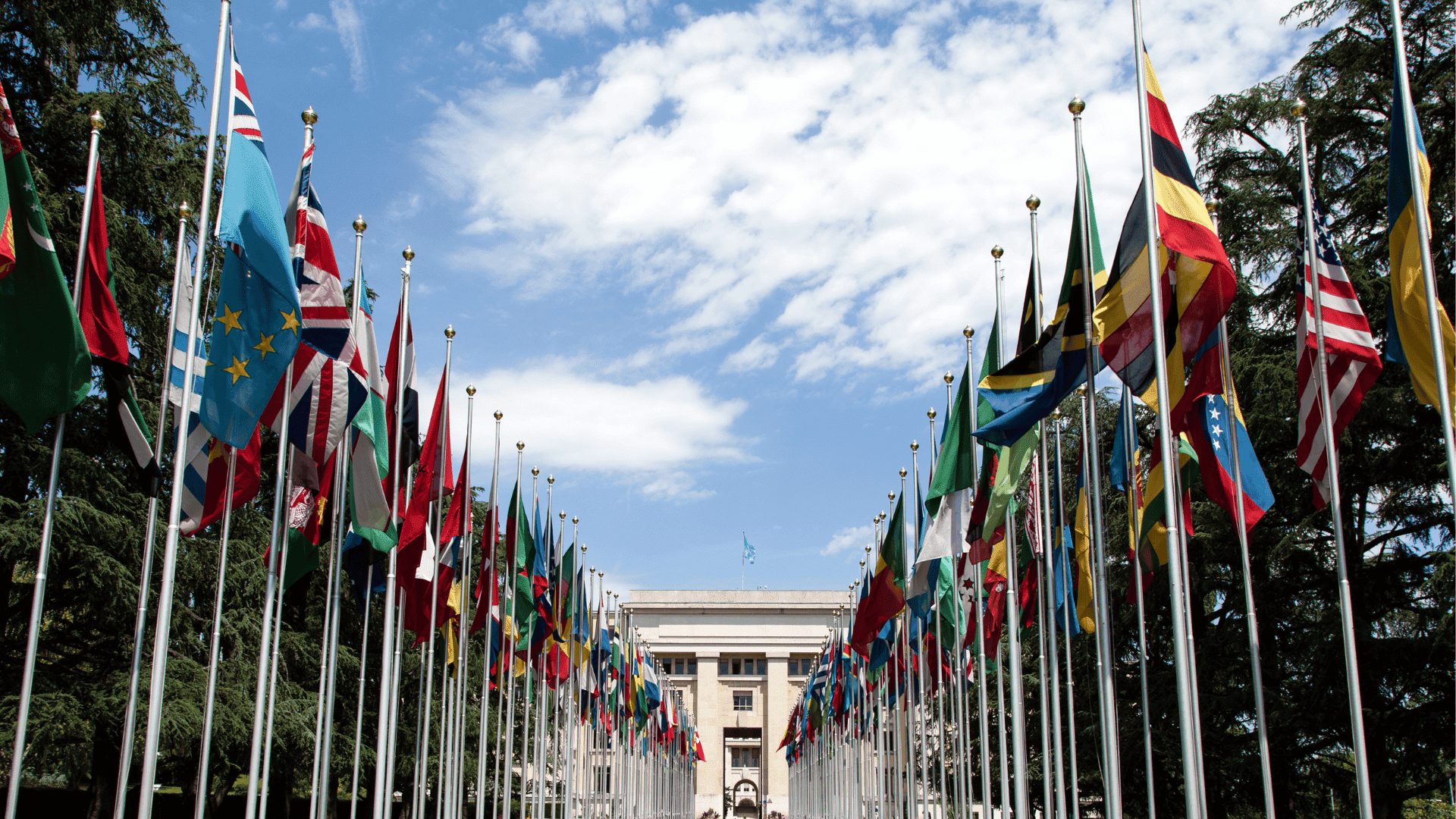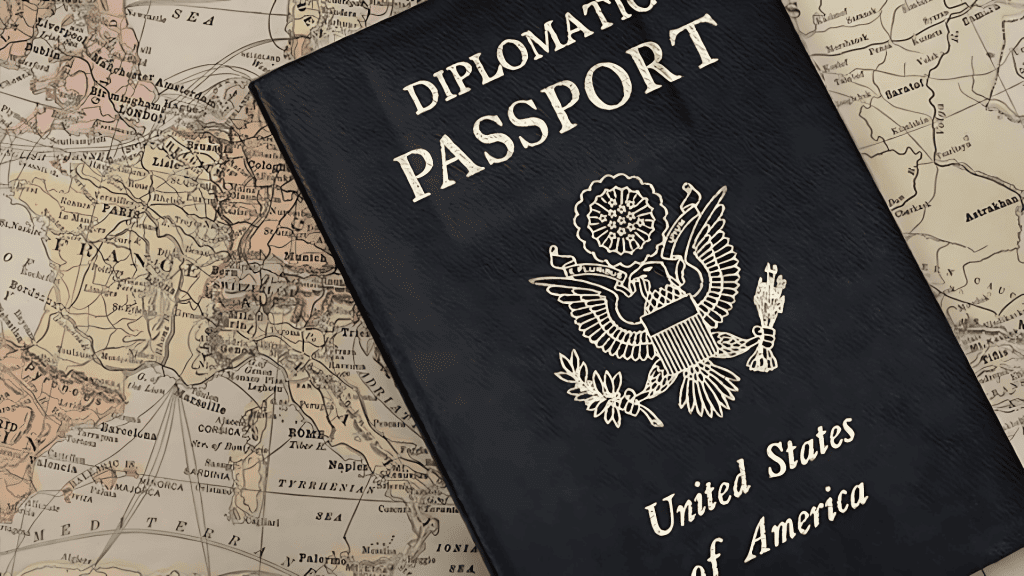Have you ever wondered how diplomats can avoid arrest in foreign countries?
The concept of diplomatic immunity protects foreign officials from local laws. This legal shield allows them to work without fear of harassment or legal trouble.
But it also creates debates when diplomats misuse their status. Many people question whether these protections go too far.
What Is Diplomatic Immunity?
Diplomatic immunity is a legal protection that shields foreign diplomats from prosecution in the countries where they are accredited. This means diplomats cannot be arrested, tried, or punished under local laws while serving abroad.
The Vienna Convention on Diplomatic Relations of 1961 established these rules. Nearly every country follows this international agreement. It covers:
- Embassy staff and their families
- Government representatives
- International organization officials
The protection starts when diplomats enter a host country and ends when they leave or lose their status.
Key Types of Diplomatic Status
Not all diplomatic personnel receive the same level of protection. The immunity varies based on their role and position:
- Full immunity: Ambassadors and senior staff get complete protection from criminal and civil cases.
- Limited immunity: Administrative staff receive protection only for official duties.
- Consular immunity: Consuls have restricted protections compared to embassy staff.
Why Does Diplomatic Immunity Exist?
Diplomatic immunity serves important purposes in international relations. Without these protections, countries could harass foreign representatives or interfere with their work.
Historical Background of Diplomatic Immunity

The concept dates back thousands of years. Ancient civilizations protected foreign messengers to maintain peaceful communication.
Even in times of war, envoys received safe passage to deliver messages between kingdoms. This tradition evolved over centuries as international relations became more complex.
Modern rules were developed to create a uniform system that all nations could follow.
The 1961 Vienna Convention formalized these protections to prevent misuse of legal systems against foreign representatives.
Benefits for International Relations

This system helps countries communicate effectively and maintain diplomatic ties:
- Prevents harassment: Diplomats can work without fear of false charges or political persecution
- Enables honest dialogue: Representatives can speak freely in negotiations without legal consequences
- Protects independence: Host countries cannot pressure foreign governments through their legal systems
- Ensures focus: Diplomats concentrate on their duties rather than navigating local laws
- Maintains neutrality: Legal systems stay separate from diplomatic functions
Rights of Diplomats
Diplomatic immunity provides extensive protection. Here are the main rights diplomats enjoy:
1. Criminal Law Protections
The strongest protections apply to criminal matters, where diplomats are nearly untouchable:
- No arrest: Police cannot detain diplomats for any crime, even if caught in the act. Officers must release them immediately.
- No prosecution: Courts cannot try diplomats for criminal acts. This includes both minor offenses and serious felonies.
- No search: Authorities cannot search diplomatic property, vehicles, or personal belongings without explicit consent from the diplomat.
- No questioning: Diplomats are exempt from testifying in criminal cases. They cannot be forced to appear as witnesses in any court proceedings.
2. Civil Law Benefits
Beyond criminal protections, diplomats also enjoy significant advantages in civil and financial matters:
- Tax exemptions: Most taxes don’t apply to diplomatic income, including income tax, property tax, and sales tax on official purchases.
- No lawsuits: Private parties cannot sue diplomats in local courts for damages, debts, or contract disputes during their service period.
- Import privileges: Diplomats can bring goods into the country without paying customs duties or facing inspections at the border.
- Traffic violations: Parking tickets and speeding fines don’t apply. Diplomats can accumulate violations without legal consequences or financial penalties.
3. Property Rights
Diplomatic buildings receive special territorial status that extends immunity to physical spaces. Host country officials are not permitted to enter without prior permission. This includes:
- Embassy buildings and grounds, which are treated as foreign soil
- Ambassador’s residence and any officially designated diplomatic housing
- Official vehicles with diplomatic plates that cannot be stopped or searched
Limits and Exceptions to Diplomatic Immunity
Diplomatic immunity has important boundaries. While protection is strong, it’s not absolute in all situations.
| What’s Protected | What’s NOT Protected |
|---|---|
| Criminal prosecution | Serious crimes (murder, terrorism) |
| Civil lawsuits | Insurance claims |
| Traffic fines | Private business disputes |
| Tax obligations | Acts before diplomatic status |
| Arrest and detention | Self-defense situations |
| Court testimony | Commercial activities |
| Property searches | Family member violations |
| Local jurisdiction | Waived immunity cases |
Home countries can voluntarily remove diplomatic immunity. This happens when:
- Diplomats commit serious crimes
- Public pressure demands accountability
- Countries want to maintain good relations
- Evidence clearly shows wrongdoing
Controversial Cases of Diplomatic Immunity Abuse
Real-world examples demonstrate how diplomatic immunity sparks public debate and raises legal challenges.
Various notable incidents that occurred in the past were:
- Traffic Accidents: In 1997, a Georgian diplomat killed a teenage girl in a car crash in Washington, D.C. He claimed immunity and returned to Georgia without facing charges.
- Domestic Violence: Multiple cases involve diplomatic spouses abusing household workers. Victims struggle to get justice due to immunity protections.
- Parking Violations: New York City diplomats accumulate millions in unpaid parking tickets each year. The city cannot collect these fines.
Some countries handle serious crimes differently. There exists a diplomatic immunity, like in :
- United Kingdom: Requests immunity waivers for violent crimes
- United States: Uses diplomatic pressure for serious cases
- Canada: Has expelled diplomats for criminal behavior
- Germany: Prosecutes after immunity ends
The Vienna Convention and Modern Rules
The Vienna Convention’s diplomatic immunity framework continues to guide international relations today. This 1961 treaty established:
- Universal standards for diplomatic protection
- Clear definitions of diplomatic status
- Procedures for handling disputes
- Guidelines for host country obligations
Most diplomatic conflicts get resolved through negotiation rather than court cases. Countries prefer maintaining relationships over pursuing individual legal matters.
Conclusion
Diplomatic immunity strikes a balance between international cooperation and local justice concerns. While it protects diplomats from harassment, it also creates situations where serious crimes go unpunished.
The system works well for maintaining global diplomacy, but faces criticism when misused. Most experts agree that immunity serves vital purposes despite occasional controversies.
The challenge lies in preventing abuse while preserving diplomatic effectiveness.
What are your thoughts on how diplomatic immunity should be applied? Do you think the rules need reform?






































